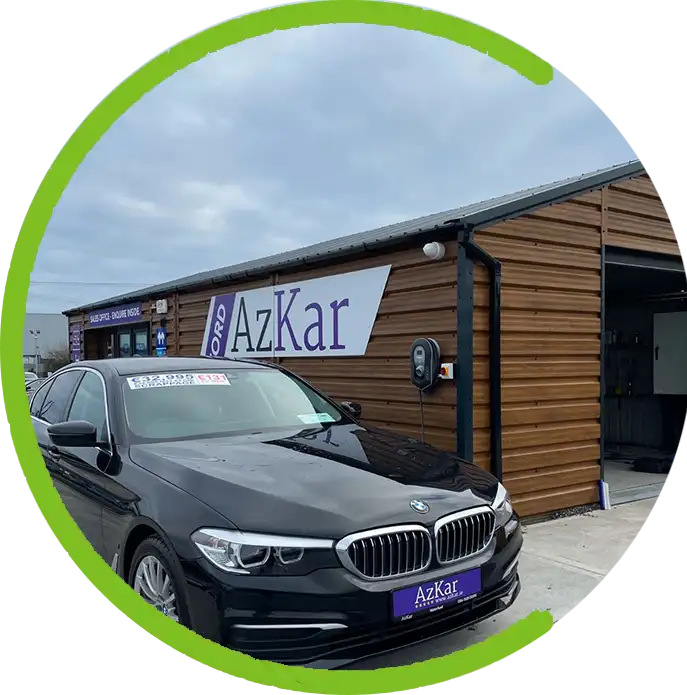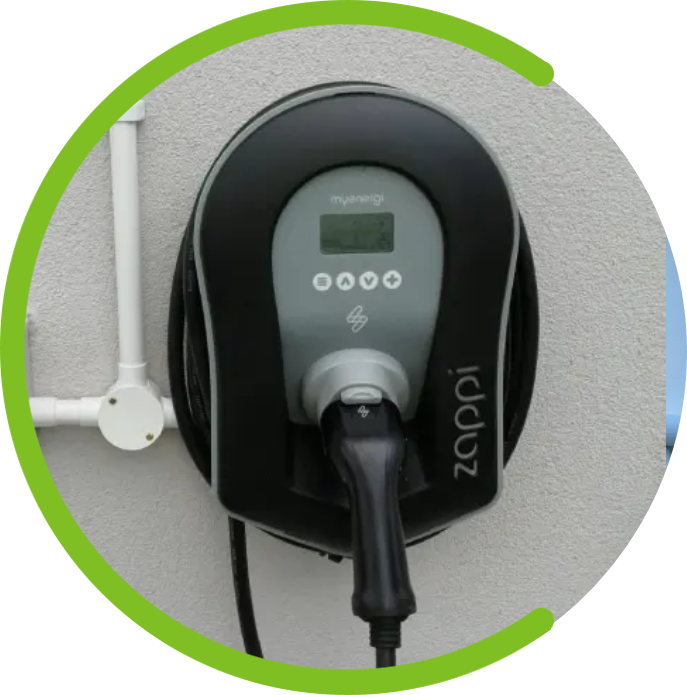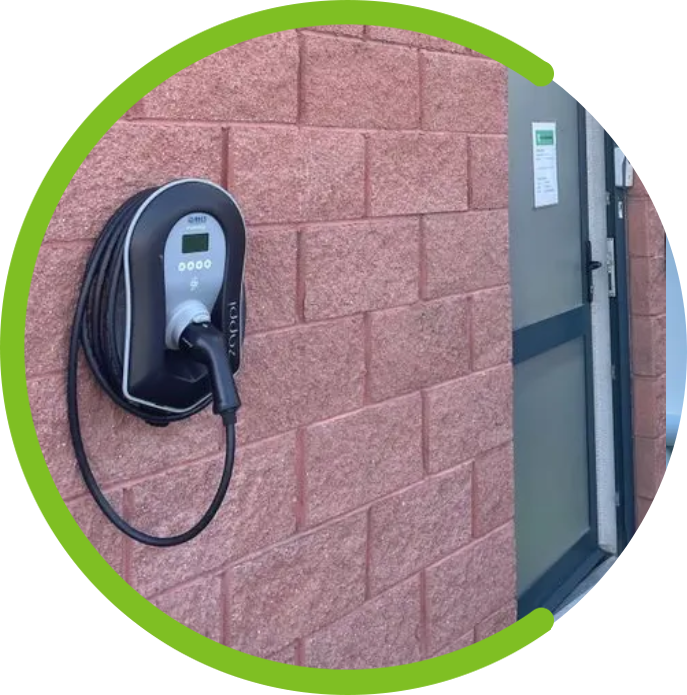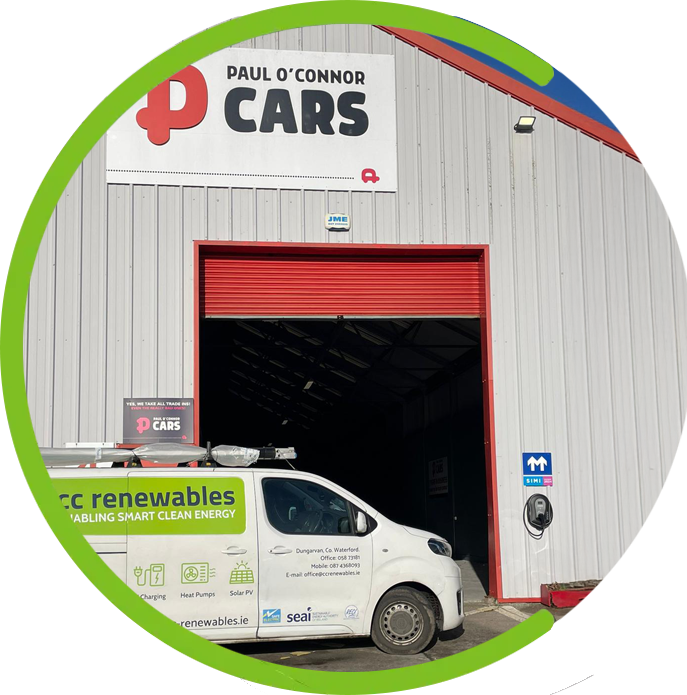EV Charging
Zappi EV Charger Made Simple

Convenience: Charge at home or work anytime.

Savings: Lower costs compared to fuel. .

Eco-Friendly: Reduce your carbon footprint.

Increased Property Value: Boost your home’s appeal.

Grants: €300 SEAI grant to cut costs.

Types of EV Charging

Home Charging

Public Charging

Fast Charging
Home Zappi EV Charger Point Installation
Government Initiatives and Incentives

Reduced Toll Fees for Electric Vehicles on Major Motorways
Reduced toll fees for both personal and commercial electric vehicles on the M50 and other major motorways across the country.


Grants & incentives

Low Motor Tax
EVs have the lowest rate of motor tax in Ireland, at just €120 per year.

Reduced Toll fees
Reduced toll fees for both personal and commercial electric vehicles on the M50 and other major motorways across the country.
SEAI EV Charging Grant
The Sustainable Energy Authority of Ireland (SEAI) offers a grant of up to €300 towards the purchase and installation of a home charger unit. To be eligible for the grant, the applicant must be the owner of a new or second-hand electric vehicle. CC Renewables can assist you in applying for the SEAI grant, making the process as smooth and hassle-free as possible.

Why Choose CC Renewables for Your Zappi EV Charge Installation?
Get Started with Zappi EV Charger Today
Ready to embrace sustainable transport and enjoy the benefits of electric vehicle ownership? Contact CC Renewables today to schedule a consultation and learn more about how we can help you install a home EV charger. Our friendly and knowledgeable team is here to answer your questions and guide you through every step of the process. Don’t wait – start your journey towards a greener future with CC Renewables now!
